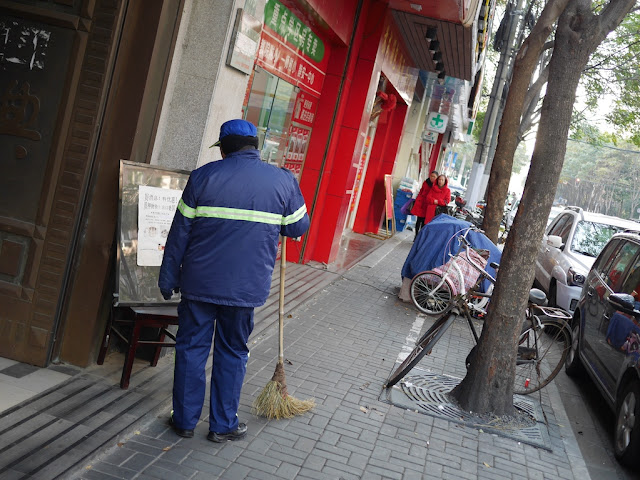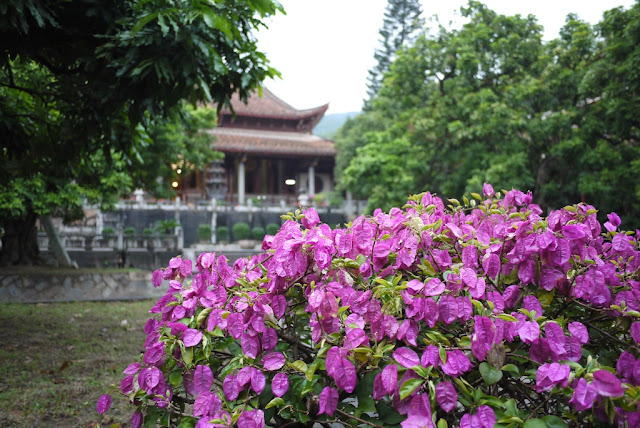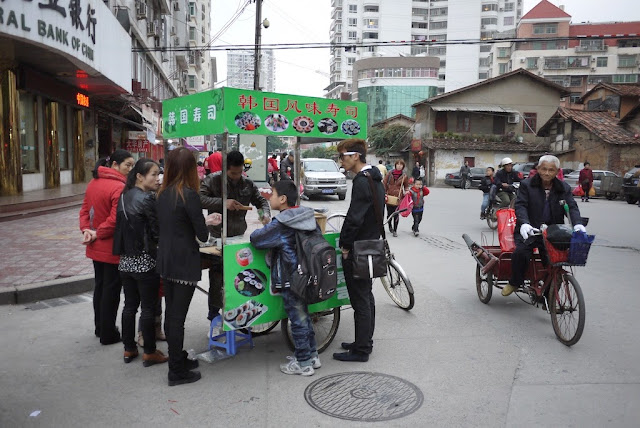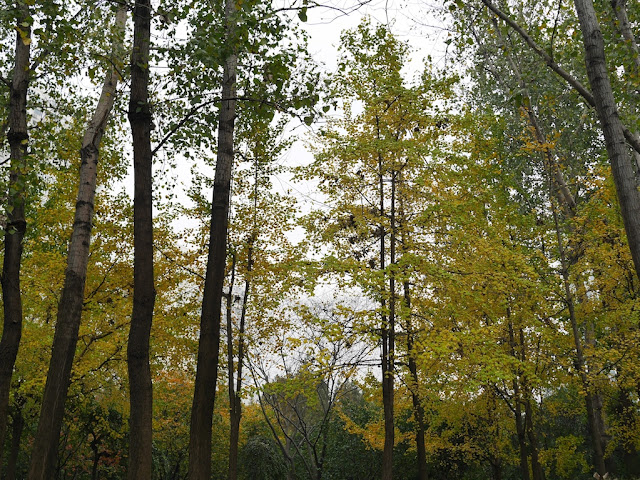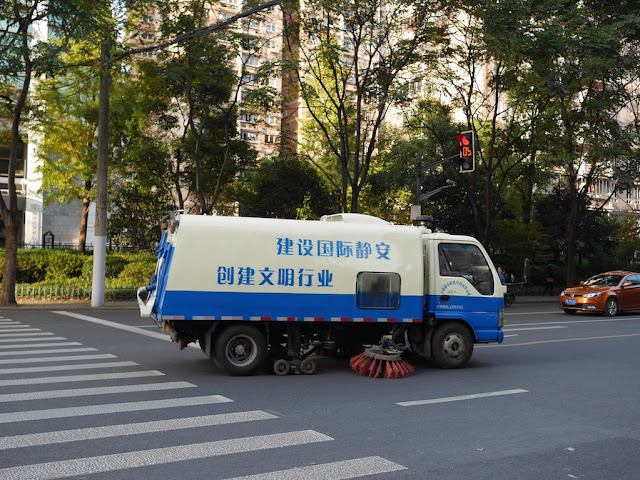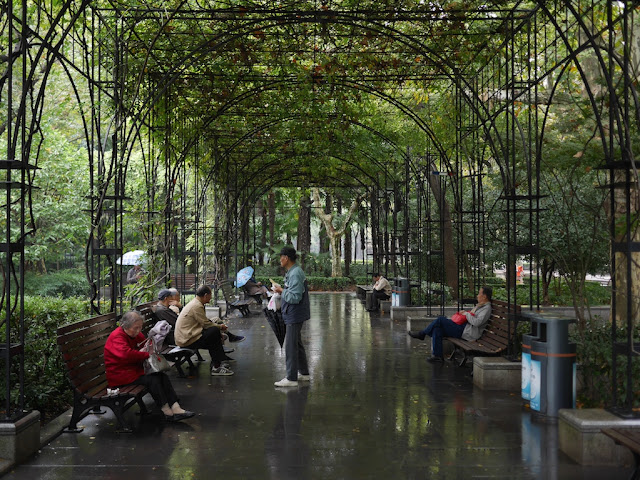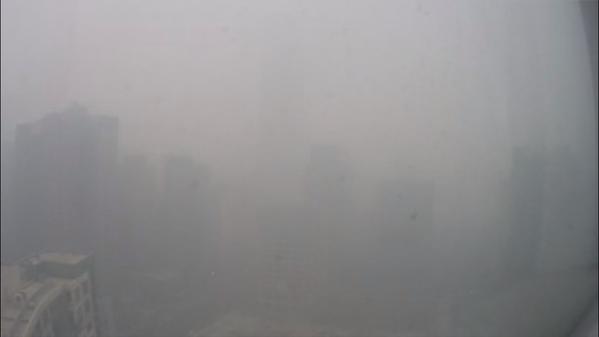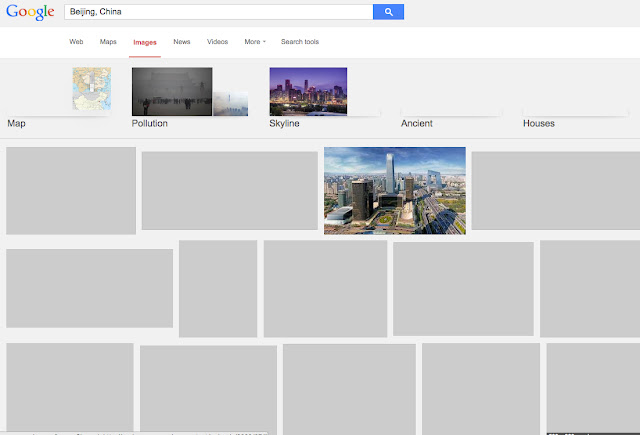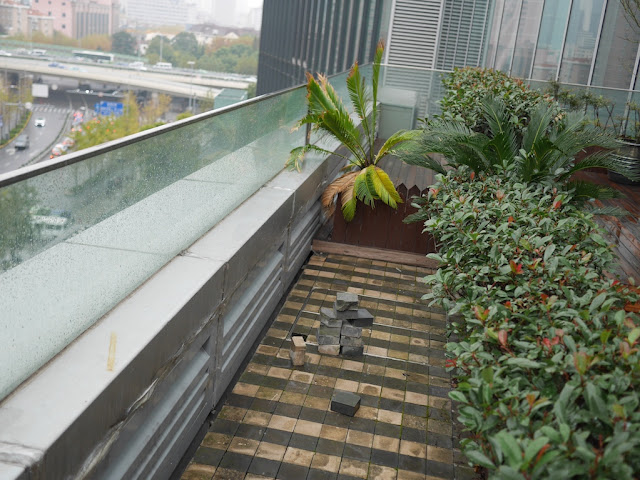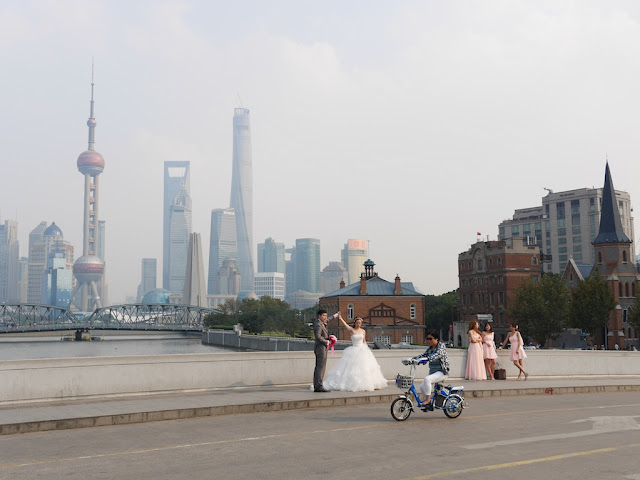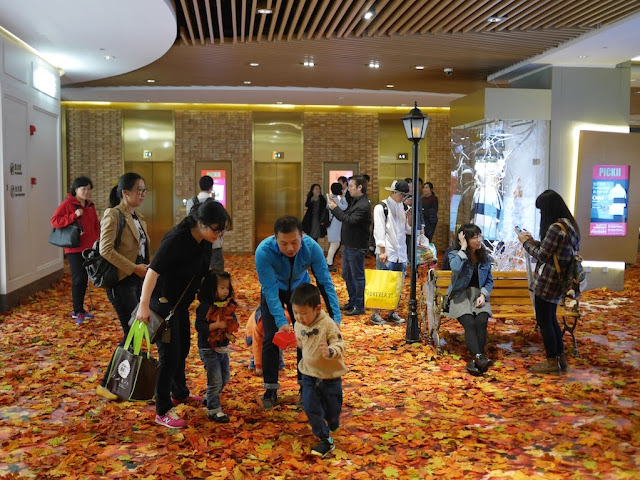To quickly touch on two recent themes and cities from the past week, here is a street cleaner in Shanghai taking a break:
And here is another scene at Guanghua Temple in Putian, Fujian province:
For more about street cleaners, there is an account by a Shanghai street cleaner which covers everything from his daily work to his interest in crickets:
And here is another scene at Guanghua Temple in Putian, Fujian province:
For more about street cleaners, there is an account by a Shanghai street cleaner which covers everything from his daily work to his interest in crickets:
I’ve been working for the government as a road sweeper for seven years and I work Monday to Friday, from seven in the morning till around four in the afternoon with a two hour lunch break. I earn 1,580rmb [about US $250 at the time] a month. It’s not too tiring. . . .For more about Guanghua Temple, Wikipedia has one of the more comprehensive articles which includes details of the temple's recent history:
I’ve played with crickets since I was a child. I can tell from the sounds they make whether they are green crickets, yellow crickets or purple crickets, how big or small they are, how strong they are. You need to look after them well to make them strong. The back of a strong cricket’s head is oily and shiny, and looks like a ripe water melon. Famous emperors used to play this game.
You need to change what you feed your crickets depending on their age. In the early days, you feed them rice with some medicinal herbs. When they are middle-aged, I make prawn porridge for them, with ant dust. The ant dust is from ants in Guangxi, the big ones. When they are almost ready to fight, I will give them pearl dust or ginseng dust.
At the foundation of the People's Republic of China in 1949 the temple had a resident population of 60 monks, a figure which by 1965 had declined to 57. Used as a factory for a period during the turmoil of the Cultural Revolution (1966–1976), the monks were dispelled and all statues of deities smashed.
With opening up and reform during the late 1970s and the advent of religious freedom, Master Yuanchan (圆禅法师) from the Yechengguang Garden Temple (椰城广化寺) in Indonesia together with other overseas Chinese began to support the Guanghua Temple. In 1979, a six-year restoration program began under the supervison of then 70-year-old Venerable Master Yuanzhou (圆拙老法师).

